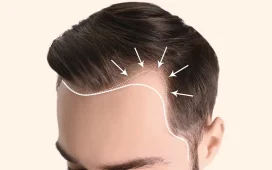The role of psychologists in prisons is crucial. They guide the process of rehabilitation and go far beyond. They work hard with inmates who have mental health issues. For those from anxiety-ridden environments like anxiety Brooklyn, this is especially important. These professionals help reshape lives, drawing on their understanding of the human mind to bring about transformation. They strive for a future where prisons aren’t just punitive, but also therapeutic in nature. Their role is a blend of mental health work and social change.
Psychologists and Rehabilitation
Psychologists play a key role in the rehabilitation of inmates. They conduct mental health assessments, provide therapy, and guide inmates toward a path of change. They offer a helping hand to those who have seldom known kindness.
They work with inmates who have various mental health issues. Depression, anxiety, and PTSD are common. These professionals offer the necessary support. They understand the human mind and its workings. They use this knowledge to help inmates change their life paths.
The Beyond: Social Change and Advocacy
Psychologists don’t just stop at individual therapy. They push for changes to the prison system. They understand that prisons need to be more than punitive. They need to be therapeutic.
They advocate for mental health services in prisons. They push for better living conditions. They fight for a future where prisons serve as places of growth and learning. They play a crucial role in shaping a better prison system.

Comparison between Traditional and Therapeutic Approach
| Traditional Approach | Therapeutic Approach | |
| Primary Objective | Punishment | Rehabilitation |
| Mental Health Support | Limited | Comprehensive |
| Role of Psychologists | Minimal | Crucial |
| End Goal | Retribution | Transformation |
The role of psychologists in prisons is mighty. They are the beacon of hope in a system that often seems devoid of it. They work tirelessly for rehabilitation and for a future where prisons serve a more therapeutic purpose.











